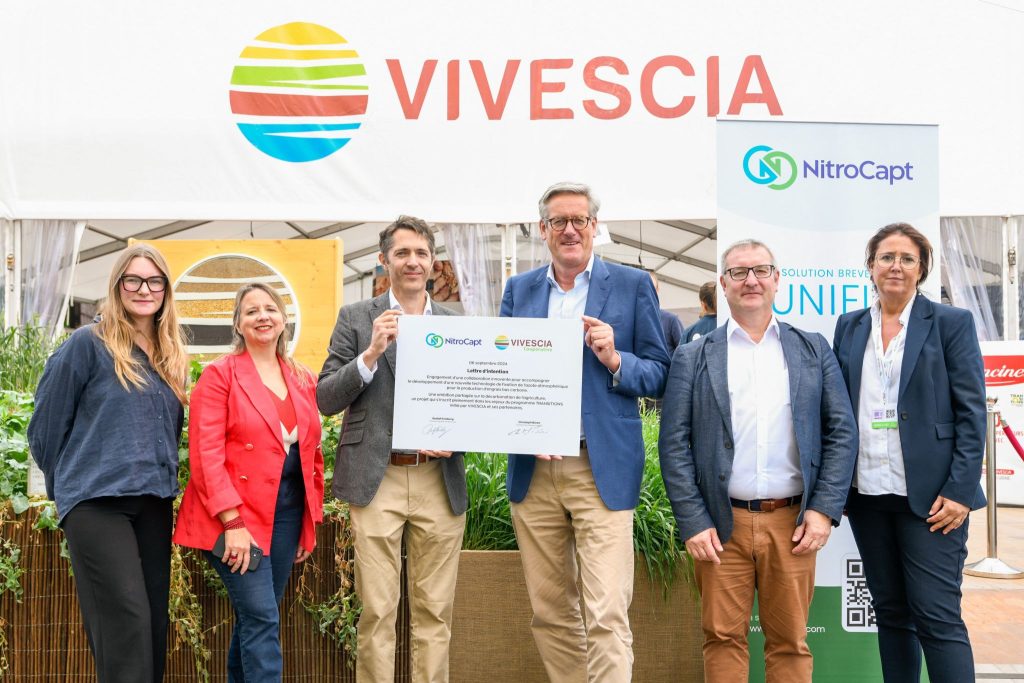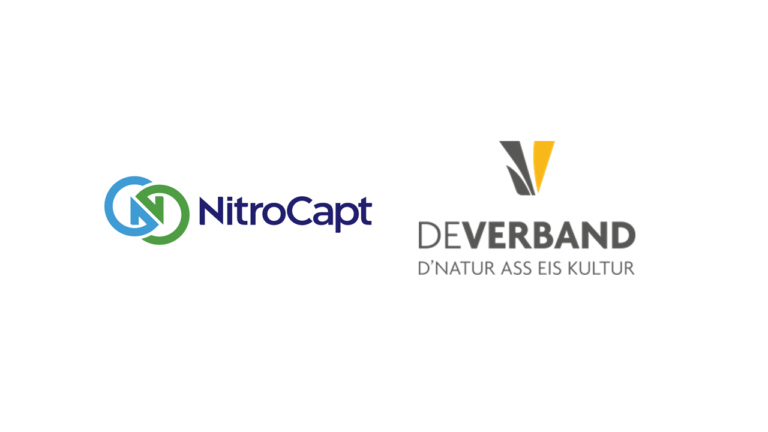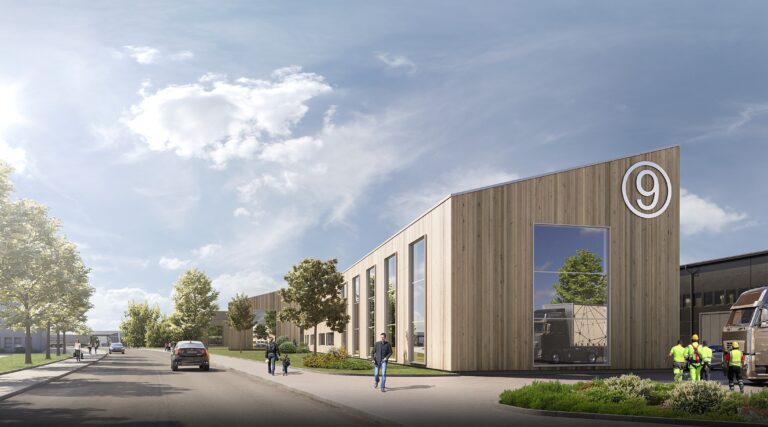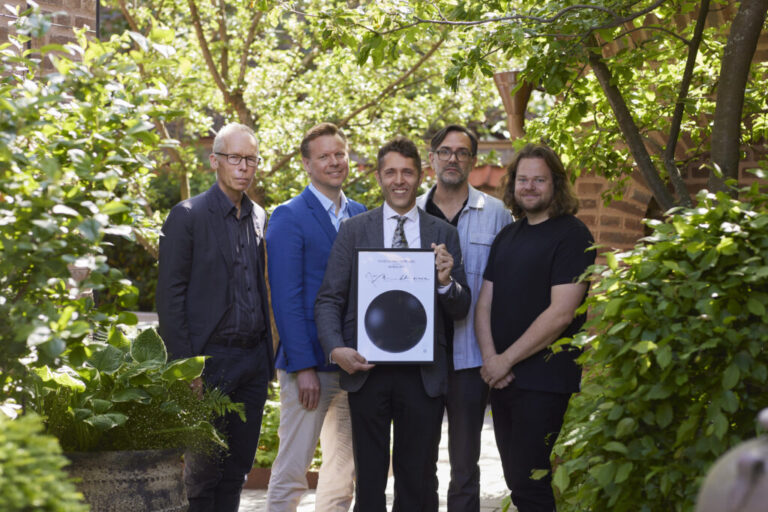
Adjani Isabelle (Business developer, NitroCapt), Valérie Frapier (CSR Director and director of the TRANSITIONS programme, VIVESCIA), Gustaf Forsberg (CEO, NitroCapt), Christoph Büren (President, VIVESCIA), Cédric Cogniez (Deputy managing director for agricultural businesses, VIVESCIA) and Emylie Debruyne (Product and marketing manager at VIVESCIA Cooperative)
©️ Axel Coeuret – VIVESCIA
NitroCapt, a pioneering Swedish Agtech company founded in 2016, and VIVESCIA, a leading French agricultural cooperative, are excited to announce a strategic partnership aimed at transforming the fertilizer industry and advancing sustainable agriculture. The goal is to build production in Grand Est region, France of green nitrogen fertilizers for 750,000 hectares, a surface corresponding to 1/3 of all farmland in Sweden.
This partnership is fully in line with VIVESCIA Group’s CSR policy, LINK, and its regenerative, low-carbon agriculture programme, TRANSITIONS. It aims to develop the production of low-carbon fertiliser thanks to SUNIFIX®, an exclusive process developed by NitroCapt based on fixing atmospheric nitrogen. This innovative technology enables the production of sustainable fertiliser exclusively from renewable energies, which can help to improve the agronomic and economic performance of farming practices while contributing to the transition to sustainable and resilience food systems.
The President of VIVESCIA Group, Christoph Büren, said: “Many initiatives have already been implemented in terms of decarbonisation, in particular with the TRANSITIONS programme. We need to keep moving forward in this direction. Although practices are starting to change in terms of fertiliser use, we need to go further and envisage partnerships for the production of more resilient nitrogen fertiliser. Testing new solutions – pioneering – is central to our purpose. We are definitively committed to an approach that is devoted to progress for the entire industry and our region.”
Gustaf Forsberg, CEO of NitroCapt, explains: “Nitrogen fertilisers are crucial to maintaining yields, but they are also a major source of greenhouse gas emissions. Nowadays, we have to reconcile the issue of decarbonisation with that of efficiency and food autonomy. Our technology meets these three objectives by enabling the development of low-carbon, efficient nitrogen fertiliser that can be produced directly by cooperatives without the need to import any raw materials.”
A first pilot phase is currently being deployed in Sweden to consolidate the process before a demonstration plant is built in the Champagne Ardennes region of France.
Ultimately, if the scale-up and agronomic trials are successful, the objective is to build plants that will produce competitive, decarbonised fertiliser in the north-east of France. These plants will be able to produce enough nitrogen fertiliser to cover the needs of farmers on at least 750,000 ha of farmland. The first plants are expected to be commissioned in 2028.



